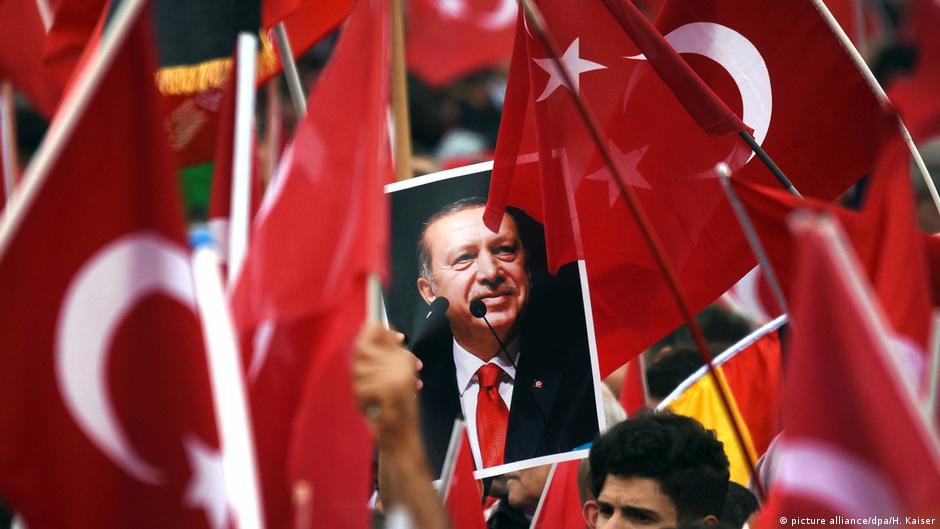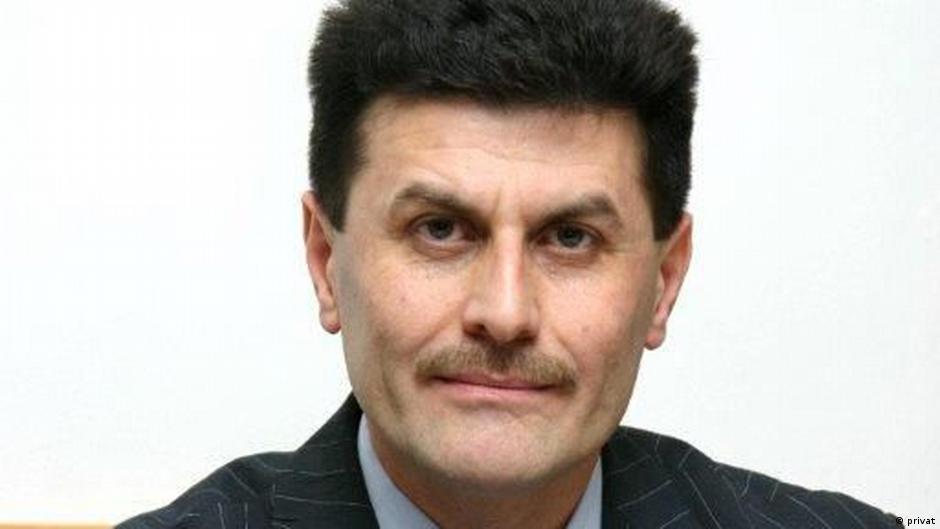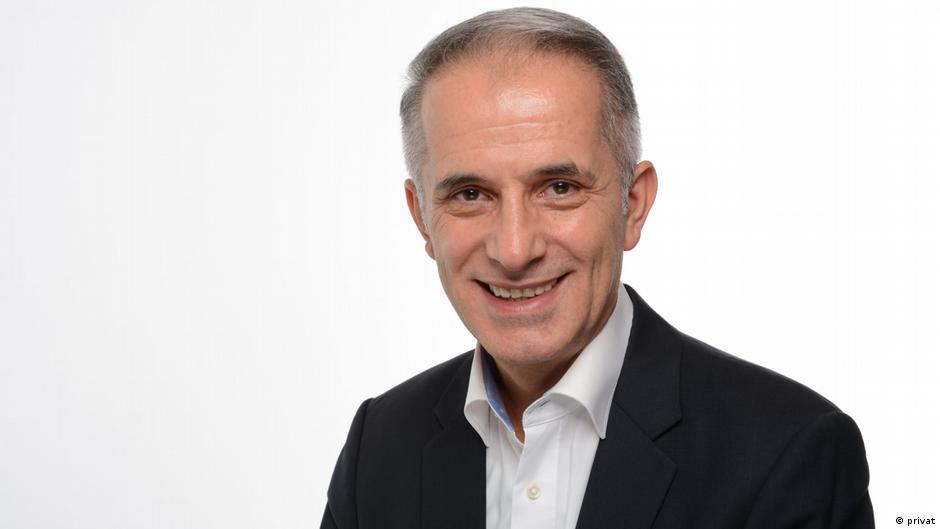Why Turks in Germany still vote for Erdogan

Turks living in Turkey won't be the only ones voting for a new president and parliament in the upcoming general election on 14 May – Turkish citizens all over the world will also take part. That's also true in Germany, which has the largest Turkish diaspora. According to a migration report published five years ago by Germany's Federal Office for Migration and Refugees (BAMF), there are around 2.8 million people living in Germany who have a Turkish migration background, and approximately half of them have Turkish citizenship.
Between 27 April and 9 May, Turkish citizens living in Germany can cast their ballots at 14 foreign representative offices and consulates. Turkey's Consul General Turhan Kaya said that he was unable reveal any specifics about the voting process as it was pending approval from German officials.
The outcome of the election is still up in the air, and this time Recep Tayyip Erdogan might actually lose. His challenger Kemal Kilicdaroglu of the social-democratic and Kemalist Republican People's Party (CHP) has widespread political and societal support. If the election were taking place in Germany, however, Erdogan and his Justice and Development party (AKP) would enjoy a decisive victory.
Erdogan's enduring support base in Germany
Metin Sirin has been living in Cologne for 43 years. He worked for Ford-Werke, a subsidiary of Ford Motor Company, for four decades and was an active union member. Sirin has voted for Erdogan before and said he will do so again in the upcoming election. "My sympathy for the AKP has increased in the last 20 years," he said.

"People with Turkish roots in Germany vote overwhelmingly for Erdogan. That's the reality," explains Yunus Ulusoy from the Centre for Studies on Turkey and Integration Research (ZfTI) at the University of Duisburg-Essen. Almost 63% of Turks living in Germany voted for Erdogan's constitutional referendum in 2017, even though only 51% of Turks living in Turkey supported the measure. The referendum transformed the country from a parliamentary system into a presidential system. The country's 2018 presidential elections followed a similar trend: 64.8% of Turks living in Germany voted for Erdogan, while a significantly smaller 52.6% of the population in Turkey voted for his re-election.
Yet support for Erdogan among Turks is not nearly as widespread in other foreign countries. In 2018, Erdogan received just 17% of the votes from Turkish citizens living in the United States, 21% from those living in the UK, 35% from those living in Iran and 29% from those in Qatar.
German Turks under fire
The voting trends of Turks living in Germany have been heavily criticised. One of the points raised is that their preferences were contradictory: how could Turkish Germans vote for the Social Democrats or the Green Party in Germany, the argument goes, while simultaneously voting for the Islamic, conservative AKP in Turkey? To Sirin, it's a rational choice, and – far from being fanatical – possibly even a sign for how open conservative Turkish voters in Germany were to change. "People vote for the party that represents their interests. That's a positive thing," Sirin said.
Political analysts view the situation similarly. "Even when living abroad, people still look to parties with views similar to their own. Once the question among Turks was, 'should I vote for the Christian Democratic CDU or the Social Democratic SPD?' A lot of Turkish voters belonged to the working class back then, which meant the SPD's international orientation was closer to conservative Turks' preferences than that of the conservative CDU," explained integration expert Ulusoy.
The first Turks that emigrated to postwar Germany primarily came from the rural Anatolian region, which is quite conservative. "When people emigrate, the values they bring with them continue to develop. Their religious-conservative views are preserved in the diaspora," Ulusoy said.

An important factor in Sirin's decision to vote for the AKP has been Turkey's development under Erdogan's leadership. He is pleased with the advances made in many areas, including healthcare, transportation and defence, and compares modern-day Turkey with the Germany of his past. "When we came here, we were fascinated by Germany. We thought the government offices, the hospitals, and the freeways were all astounding. We thought it was a shame that we couldn't see anything similar in Turkey. However, during the last 20 years, we've watched the quality of our hospitals and motorways reach global standards."
Sirin went on to explain that services at consulates and the rights of Turks living in numerous countries abroad have drastically improved since Erdogan has been in power. He also mentioned that citizens can now pay to be exempted from military service. "That's a big accomplishment by the AKP, and it's why they have my support," Sirin said, adding that Turks have been able to vote in foreign representative offices since 2014, something previously impossible.
Demonisation versus belonging
Ulusoy criticised that many Germans did not even try to understand the voting patterns of conservative Turks. While it was easy to "ideologically judge or scandalise" these voting trends, he said, there should be more effort made to understand what motivates voters.
Ulusoy also suggested the German public focuses too heavily on Turkish voting habits. "Are German Turks the only ones who vote in their home countries? Of course not. Italians living in Germany can also vote, and a right-wing government was recently elected in Italy. Yet nobody knows how Italians living in Germany voted, and nobody is curious to know," Ulusoy argued.
[embed:render:embedded:node:31458]
Erdogan seems to fill a gap as yet unfilled by the German state. "For the past 60 years, German politicians have had a hard time acknowledging Turkish people and saying to them 'You belong to this country, regardless of whether you founded BioNTech, or are a youth who took part in riots on New Year's Eve. Even if you make a mistake, you are still one of us.' Erdogan communicates just that. He tells them 'regardless of where you are, or what citizenship you have, you belong to us'."
Sociologist Sabrina Mayer from the University of Bamberg holds a similar view. "It's easy for Erdogan to reach people with roots in Turkey who long to be appreciated for their Turkish heritage," she explained. She believes the political class in Germany has never given German Turks the feeling they belong to German society.
Mayer points out that for years German politicians failed to streamline the naturalisation process for Turkish citizens living in the Federal Republic. She says that is a far cry from the rights afforded to people who lived in Russia and other former Soviet states, who, thanks to Article 116 of Germany's Basic Law, are able to become German citizens with far less effort than Turks.
"These factors lead younger people, third-generation immigrants for example, to vote for Erdogan out of defiance," said Ulusoy. Sirin agrees: "In recent years, conservative [Turkish] people have been excluded by Germany's political parties because of Erdogan. That's a really unfortunate development. Such exclusion causes a reaction, and eventually people start supporting Erdogan as a result."
Regardless of how the general election on 14 May turns out, Sirin still wants to exercise his right to vote and have representation. "Even though I live in Germany, and have for 43 years, I still can't vote in local elections. That's exclusion and it makes me sad. In Turkey on the other hand, I have the right to vote. I'm proud to be able to help determine something that impacts our citizens."
Burak Unveren
© Deutsche Welle 2023
